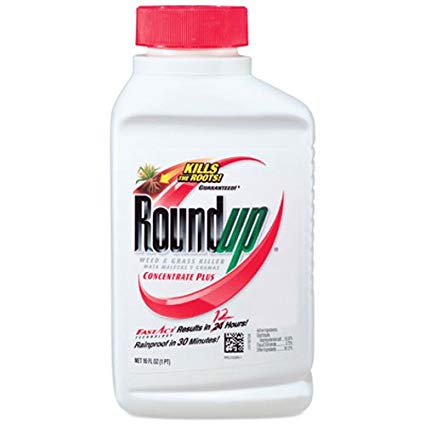A federal jury in San Francisco awarded plaintiff Edwin Hardeman more than $80 million in damages late last month, after determining that exposure to the popular weed killer, Roundup, was a substantial factor in his development of cancer. According to Hardeman’s lawsuit, the California resident was diagnosed with non-Hodgkin’s lymphoma in February 2015, after more than two decades of spraying Roundup on his 56-acre property to deal with weeds, poison oak and overgrowth. The jury awarded Hardeman $5.27 million in compensatory damages and $75 million in punitive damages, which are intended to punish Monsanto and hold the company accountable for its misconduct.
Massive Verdicts in Roundup Lawsuits
Hardeman’s Roundup lawsuit is the first case to be tried in federal court, but there are roughly 11,000 other Roundup cancer cases still pending against Monsanto in state and federal courts. All of these lawsuits involve similar allegations that plaintiffs developed cancer after being exposed to Roundup, a weed killer whose active ingredient, glyphosate, is widely used in the United States and sold in more than 160 countries around the world. In fact, while glyphosate was once only used on a small scale, it is today considered the most-used agricultural chemical in the history of the world, and reports indicate that more than nine million tons of glyphosate have been sprayed on crops, orchards, lawns and gardens worldwide since the weed killer was introduced in 1974.
As more evidence emerges about the potential for glyphosate and Roundup to cause cancer in users, the number of Roundup lawsuits brought against Monsanto continues to grow. Just last year, a California jury awarded $289 million in damages to Dewayne Johnson, a 46-year-old who developed terminal cancer after using Roundup 20 to 30 times per year for his job as a groundskeeper at a school district near San Francisco, including two incidents where he was soaked with the weed killer. Johnson’s total damages award was later reduced to $78 million, but the case still set a precedent for the thousands of other Roundup lawsuits that claim the most popular herbicide in the world causes cancer and that Monsanto knew about the potential link between Roundup and cancer and covered it up.
Glyphosate is “Probably Carcinogenic to Humans”
Individuals across the country who were diagnosed with non-Hodgkin’s lymphoma and other cancers began filing lawsuits against Monsanto after a report from the World Health Organization’s International Agency for Research on Cancer (IARC) suggested that Roundup’s active ingredient has the potential to cause cancer. The report, which was published in 2015, indicated that glyphosate is “probably carcinogenic to humans,” but Monsanto was quick to discredit the report, saying that hundreds of studies published in recent years have established glyphosate is safe for human use.
Evidence of Monsanto’s Glyphosate Cancer Risk Coverup
Following the IARC report on glyphosate, evidence began to emerge that Monsanto knew about the potential risk of cancer from Roundup for more than a decade, and not only deliberately withheld this information from the public, but also engaged in an elaborate scheme to prevent the truth from being discovered. Discovery documents released by the court suggest that Monsanto ghostwrote reports for the U.S. Environmental Protection Agency (EPA) regarding glyphosate’s safety, conspired to prevent studies from being published that presented glyphosate in an unfavorable light, persuaded key EPA officials to declare that glyphosate is “not likely to be carcinogenic” to humans, and exercised its influence over the EPA to prevent other agencies from conducting their own assessments of glyphosate.
Monsanto Still Faces Thousands of Roundup Lawsuits
Monsanto’s long history of deception and manipulation has led to thousands of lawsuits being filed against the company by Roundup users who claim the weed killer caused them to develop cancer, and attorneys representing plaintiffs like Edwin Hardeman say these multimillion-dollar verdicts send a message to Monsanto that the company needs to make significant changes in the way it does business.
Monsanto’s parent company, Bayer, announced that it would appeal Hardeman’s $80.3 million verdict, saying, “We are disappointed with the jury’s decision, but this verdict does not change the weight of over four decades of extensive science and the conclusions of regulators worldwide that support the safety of our glyphosate-based herbicides and that they are not carcinogenic. The verdict in this trial has no impact on future cases and trials, as each one has its own factual and legal circumstances.” Despite Bayer’s claim that the Hardeman verdict will have no impact on future trials, the case was classified by U.S. District Judge Vince Chhabria as a bellwether trial, which means the verdict could put plaintiffs in the remaining cases appearing before Chhabria in a better bargaining position during any potential settlement talks.




